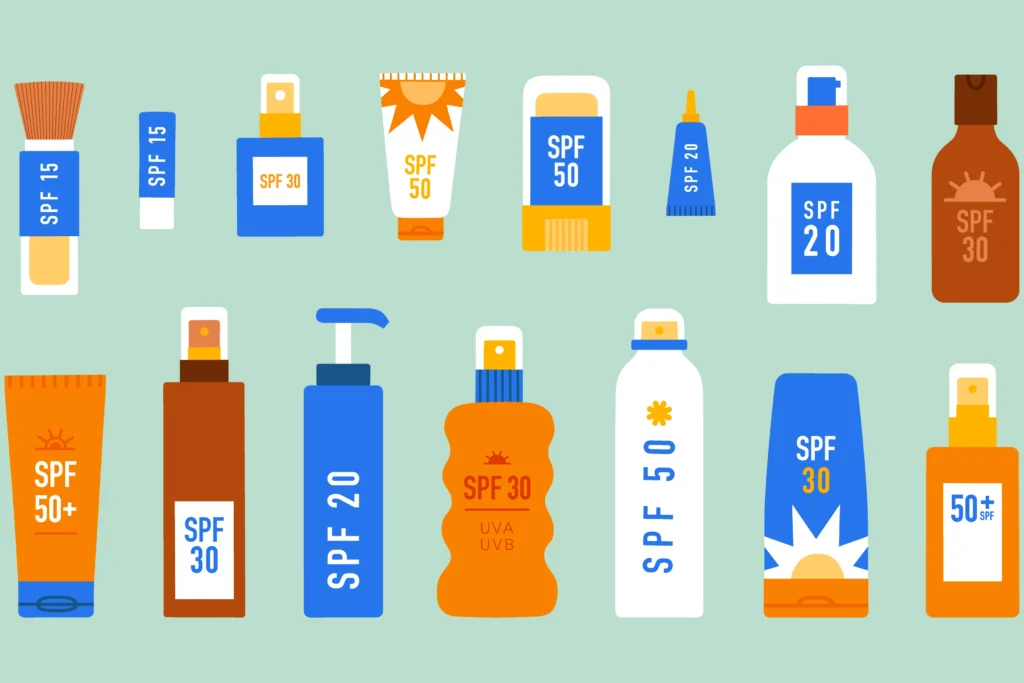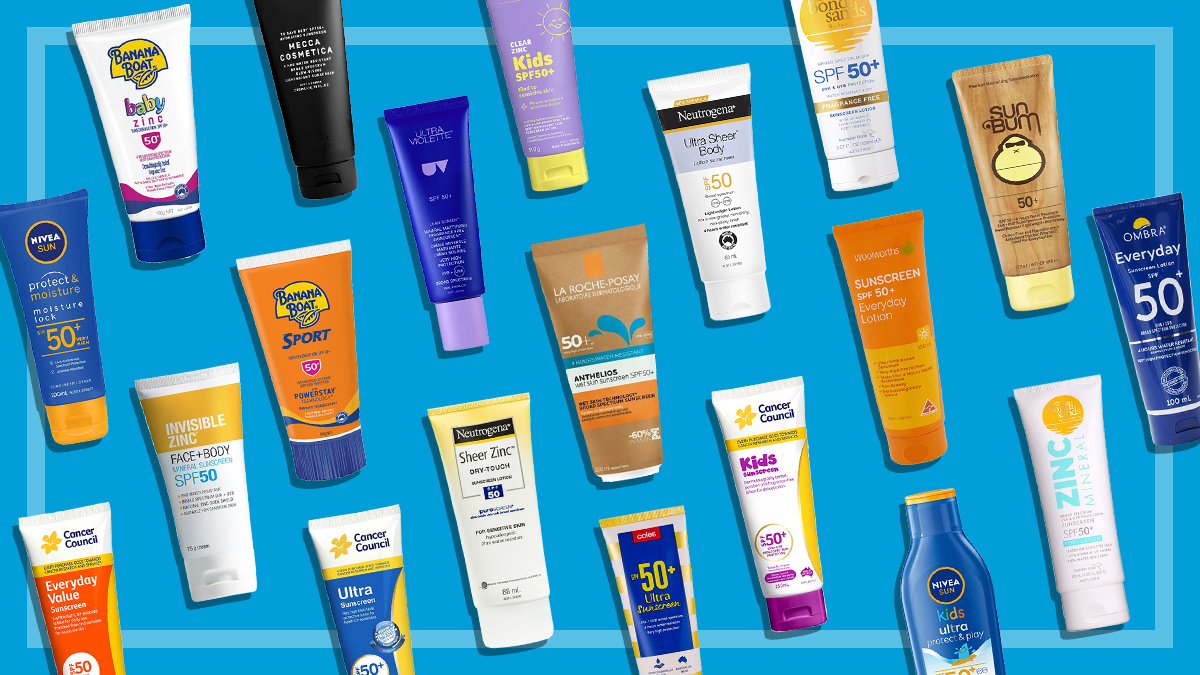
Why This Day and Age There’s Doubt About Sunscreens
Sunscreen seems straightforward — apply it and you’re protected — yet recently many Australians are asking: “Is my sunscreen really doing what it says?” Several factors have stirred this scepticism:
- Consumer testing by CHOICE found that many sunscreens labelled SPF 50+ did not achieve near-that level in independent tests.
- Therapeutic Goods Administration (TGA) investigations have revealed concerns that some popular products may vastly under-deliver their claimed protection.
- The phenomenon of “cosmetic” vs “therapeutic” sunscreen: some products may look like sunscreens but don’t have to meet the rigorous testing standards of primary sun-protection products. This creates consumer confusion.
- The intense Aussie sun and high melanoma/skin-cancer risk mean that the performance of sunscreen is critical, not optional.
So in a world where brand names proliferate, it’s more important than ever to understand what goes into a quality sunscreen and how to pick one that genuinely protects.
How Sunscreens Are Tested & Approved in Australia
Regulatory framework
- In Australia the TGA classifies many sunscreens as therapeutic goods (not just cosmetics) because their primary purpose is UV protection, which is a health-related function.
- Before a “therapeutic sunscreen” can legally be supplied, it must be listed or registered on the Australian Register of Therapeutic Goods (ARTG).
- There is an Australian/New Zealand Sunscreen Standard (AS/NZS 2604) which defines testing protocols (for example, SPF, broad-spectrum protection, water resistance) and labelling requirements.
Testing & consumer issues
- The TGA outlines how SPF is tested, what “SPF 50+” means, and emphasises that no sunscreen blocks 100% of UV radiation.
- The CHOICE testing found that of 20 SPF 50/50+ sunscreens, 16 did not meet their claimed level.
- Because of the testing variability and significant sunlight exposure in Australia, it’s especially important to use sunscreens that follow the robust standard and to apply them correctly.
What you should look for
When selecting a sunscreen, ensure:
- It is listed on the ARTG (look for “AUST L” or “AUST R” on the label).
- It states broad-spectrum (covers UVA + UVB).
- The SPF claim is credible and applies to the situation you’ll use it in (beach, everyday, sport).
- Application instructions are followed (amount, reapplication, sunscreen after swimming/sweating).
- You complement it with other sun-safety behaviours: hat, shade, protective clothing.
What Brands Skin Check Australia Stands By

At Skin Check Australia we advocate for sunscreens that:
- Are regulated as therapeutic sunscreens in Australia
- Have credible labelling and testing, and good reputation among dermatologists
- Suit different skin types (sensitive, oily, post-treatment) and usage scenarios
While individual patient needs differ, here are some high-quality trusted sunscreens we frequently recommend:
Here’s a brief overview:
- La Roche‑Posay Anthelios Invisible Fluid SPF50+: A dermatologist-favourite, broad-spectrum, lightweight facial sunscreen.
- We Are Feel Good Inc Kakadu Plum SPF50+: Australian brand, designed for beach/outdoor use, broad-spectrum coverage for body & face.
- Mecca Cosmetica To Save Face SPF50+ Superscreen: Higher-end facial sunscreen with broad spectrum & skincare elements.
- Neutrogena Ultra Sheer Face Lotion SPF50: Reliable body/face option at a more accessible price.
- Avène Sunsitive Oil Control Sunscreen Fluid: Suited for sensitive, oily or post-procedure skin.
- We Are Feel Good Inc Sensitive Sunscreen SPF50+: Sensitive skin friendly Australian alternative.
- DermaVeen Sensitive Sun SPF50+ Face & Body: Cost-effective option for sensitive skin covering face and body.
- Avène Sunsitive Sunscreen Serum: Serum format for those looking for multisensory/skincare finish with sun protection.
We emphasise that no brand is perfect for everyone — your skin type, lifestyle (outdoors vs indoors), treatment status (post-laser, post-PDT, etc) all influence the ideal choice.
Why Sunscreen Quality Is More Important than Ever
With recent investigations showing many sunscreens may not deliver the claimed protection, it’s essential to remain cautious:
- The TGA has publicly warned that some products may deliver far lower SPF than claimed.
- Because Australia has among the highest rates of skin cancer globally, and intense UV exposure, selecting a reliably tested, broad spectrum sunscreen is a significant part of skin cancer prevention.
- Sunscreen is only one piece — sun-protective behaviours (shade, clothing, hats) remain critical.
Practical Tips for Using Sunscreen Effectively
- Apply enough sunscreen: for face, approx. a teaspoon; for body more.
- Reapply every 2 hours, and after swimming or heavy sweating.
- Use sunscreen every day, not just “when sunny”.
- Look for broad spectrum (UVA + UVB) labelled products.
- Check for AUST L or AUST R number on label.
- If you’ve undergone skin treatments (e.g., laser, PDT, scar/wound treatments) ask your clinician for specific sunscreen recommendations for post-procedure skin.
How Skin Check Australia Can Help
At Skin Check Australia we believe your sun-protection routine begins with correct product choice and continues with expert skin monitoring:
- During your skin check we assess sun-damage, UV-related changes, and guide you on the right sunscreen for your skin type and treatments.
- We offer advice on post-treatment skincare, including optimal sunscreens for skin that has undergone dermoscopy, laser, PDT, scars or rejuvenation.
- We stay up-to-date with regulatory changes and product investigations (e.g., TGA investigations) so you can trust the recommendations.
Final Word
In this day and age, not all sunscreens are created equal. The difference between a mediocre and a high-quality sunscreen can mean less reliable protection under Australia’s intense sun. By choosing products that comply with the TGA’s therapeutic-sunscreen standards, reapplying consistently, and using sun-safe behaviours, you give your skin the best chance against UV exposure and skin cancer.
Choose wisely. Protect daily. And if in doubt — check with the experts at SkinCheck Australia.

